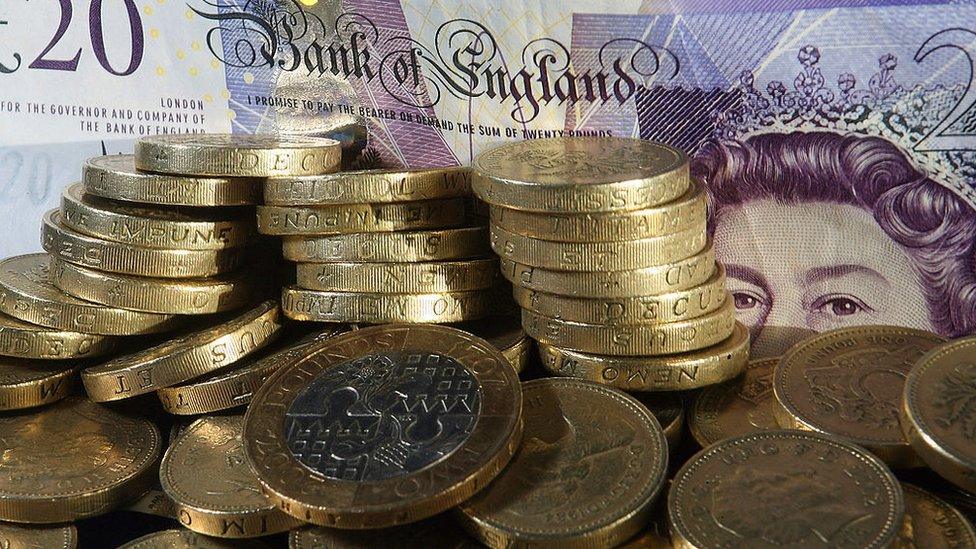Pay boosts for Shell and Rolls-Royce bosses despite profits slide
- Published

Rolls-Royce chief executive Warren East will receive a £916,000 bonus
The chief executives of UK titans Shell and Rolls-Royce will receive pay boosts despite profits falling last year.
Shell chief executive Ben van Beurden will see his pay package rise 54% to 8.59 million euros (£7.5m) due to a long-term bonus scheme.
Warren East, the boss of aircraft engine maker Rolls-Royce, will be handed a pay rise and a £916,000 bonus.
It comes after Rolls-Royce posted its biggest ever loss last year, although underlying profit beat expectations.
Meanwhile, Sir Martin Sorrell, chief executive of advertising giant WPP, has been awarded £41.5m after securing a maximum payout from the firm's long-term incentive plan, external.
WPP, which Sir Martin has built into one of the world's largest ad agencies, recorded a 13% rise in pre-tax profit last year.
Prime Minister Theresa May and major investors have called on UK firms to justify bumper pay packets for their senior executives.
Pay rise
Mr East secured his bonus after the firm exceeded targets on profits - once one-off costs were stripped out - and on cash flow.
He secured a total pay package of £2.1m for 2016, including the bonus and a £925,000 salary, according to the firm's annual report, external.
His yearly salary is set to then increase by 2% to £943,000 from September.
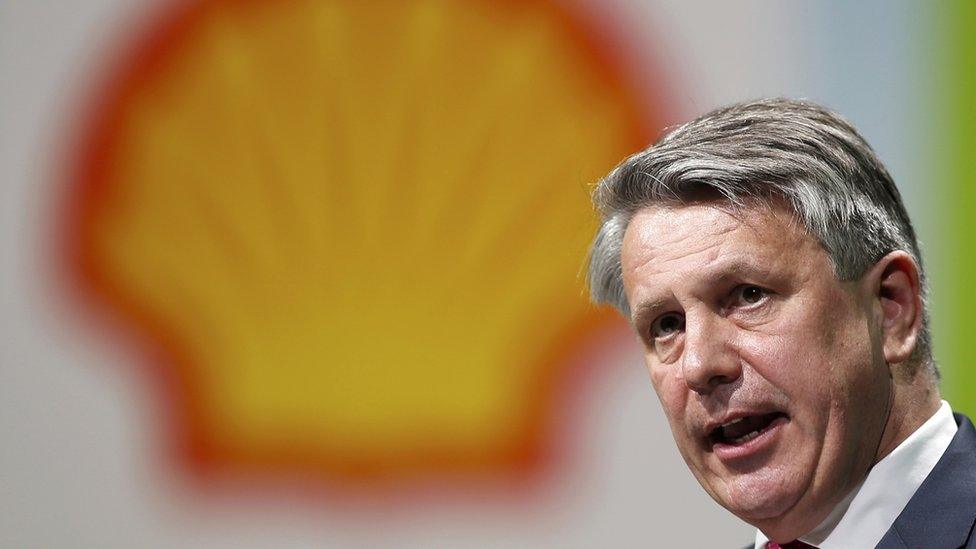
Shell chief executive Ben van Beurden's pay rose due to a long-term bonus
Rolls-Royce was pushed to a pre-tax loss of £4.6bn in 2016 after it agreed to pay £671m to settle corruption cases with UK and US authorities and wrote off £4.4bn from the fall in the pound.
Mr van Beurden's pay deal last year was boosted by a potential 4.4 million euros from a long-term shares bonus scheme.
His annual salary was little changed at 1.46 million euros, while his annual bonus was cut by a third to 2.4 million euros, according to Shell's annual report, external.
Shell, the UK's biggest oil company, saw profits fall from $3.8bn (£3bn) to $3.5bn in 2016, due to the cost of its record-breaking purchase of BG Group, and a lacklustre performance from its oil and gas trading arm.
A Shell spokesperson said: "Shell's executive compensation reflects delivery of our strategy, measured by both short-term and long-term targets. There is a clear alignment between the company's performance and our compensation policies."
- Published14 February 2017
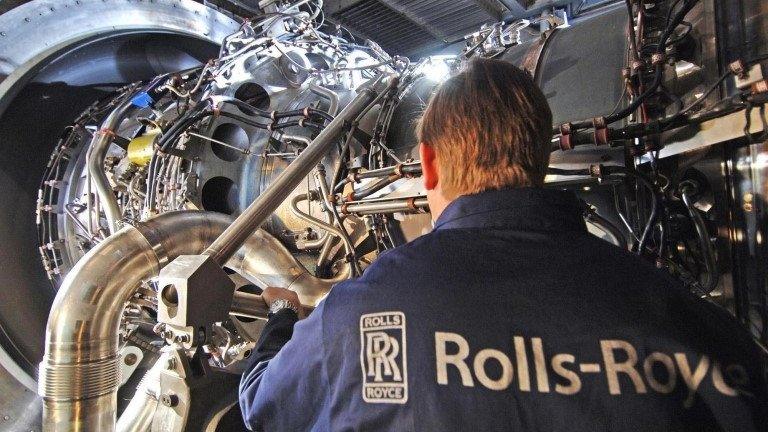
- Published15 January 2017
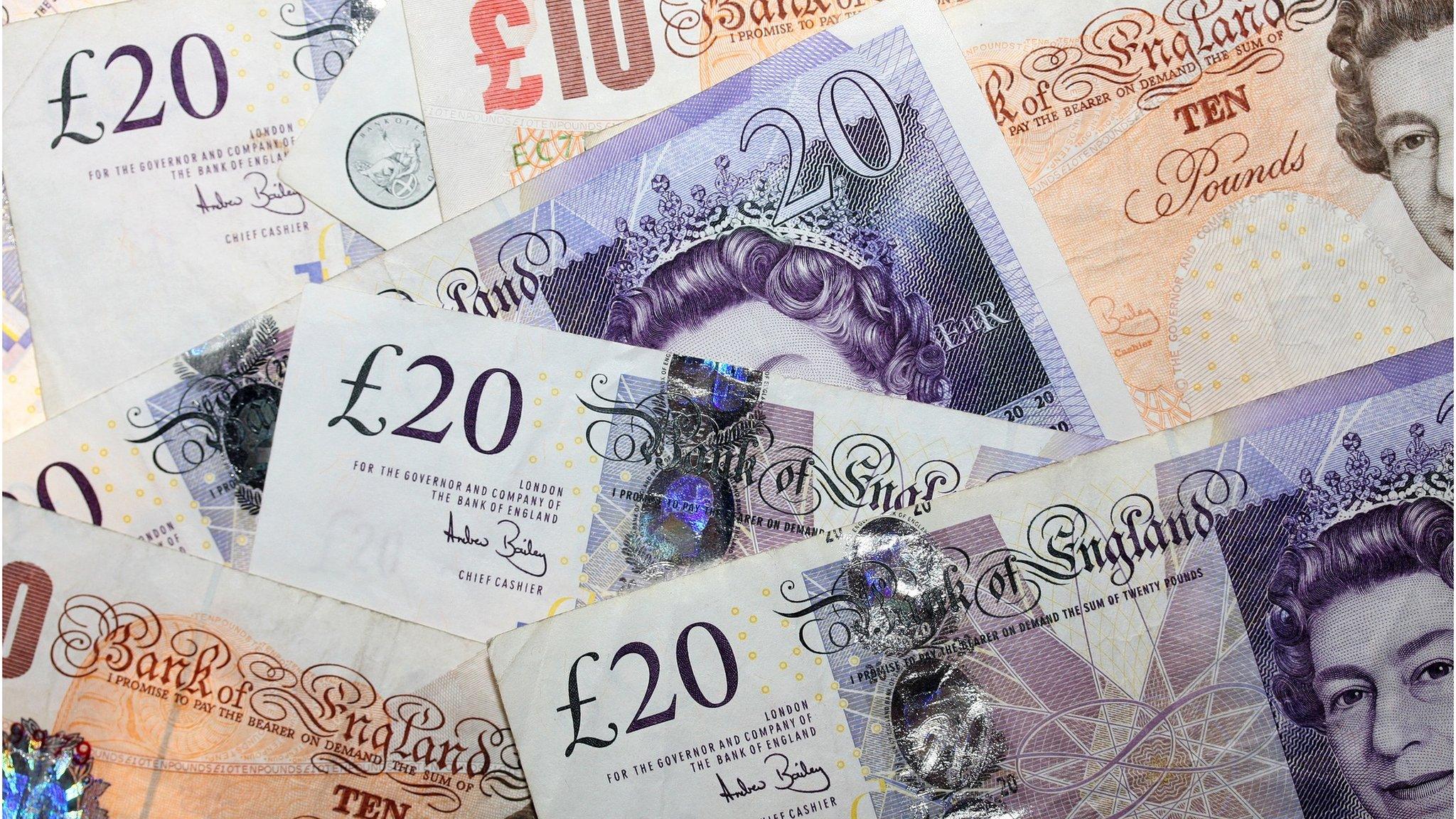
- Published2 February 2017
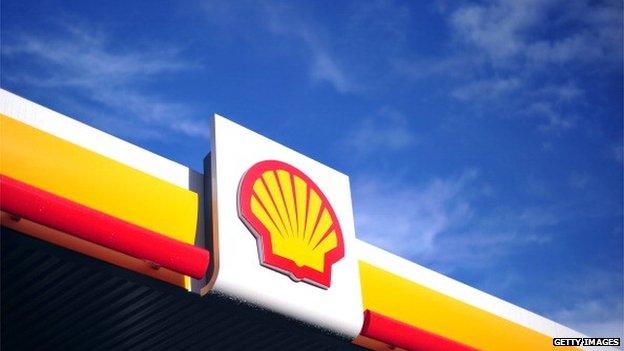
- Published29 November 2016
